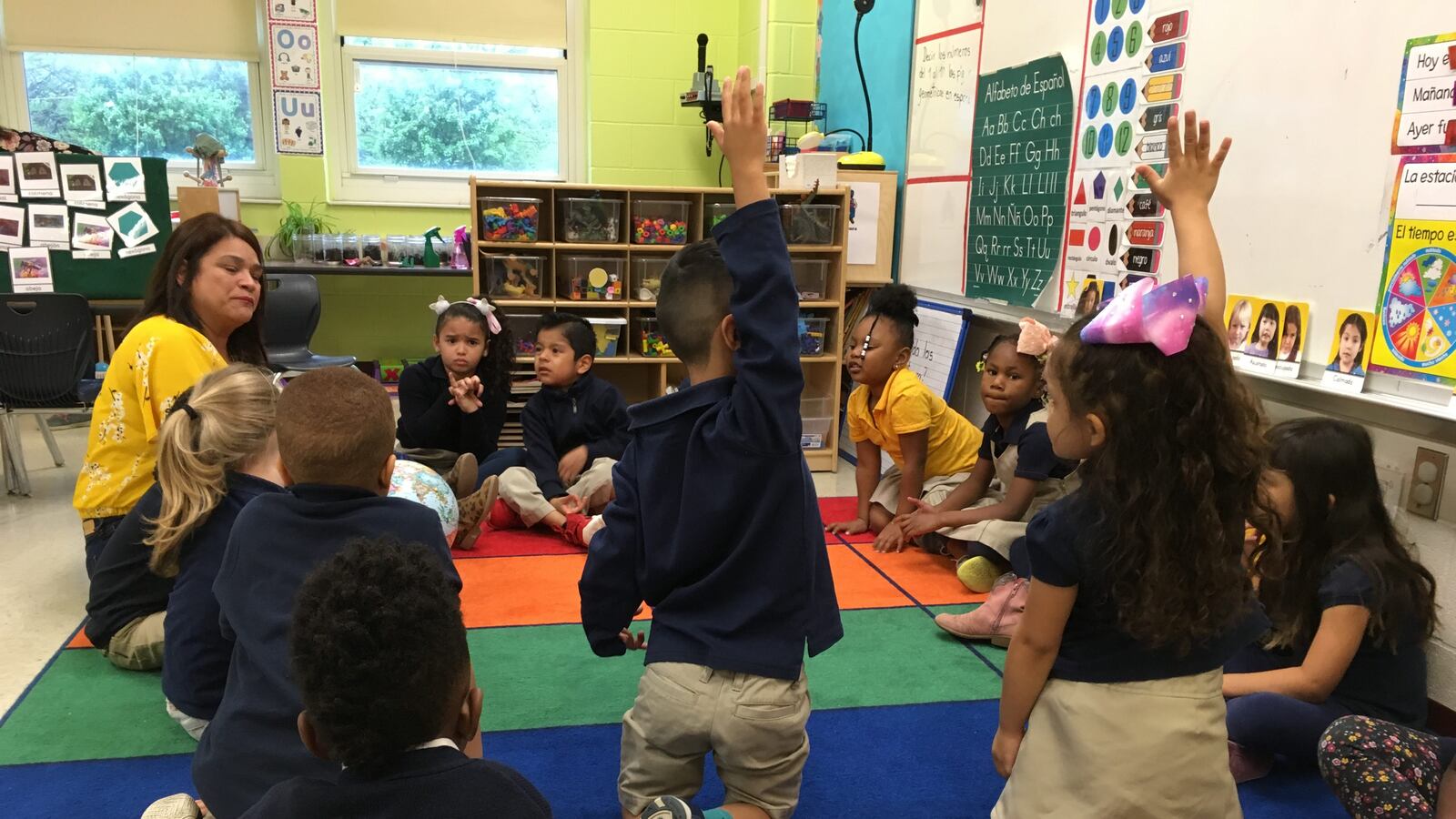Global Preparatory Academy founder Mariama Shaheed wants teachers at her charter school to have a place in the public education debate, too.
“We’re public school educators. We care about what happens in the public school space,” said Shaheed, who canceled school Tuesday so Global Prep teachers could rally alongside thousands of other educators at the Indiana Statehouse. “When charters are quiet about public education, people forget we’re part of public education.”
The Red for Ed rally that some of Shaheed’s colleagues are planning to attend is set to focus on increasing school funding and teacher pay; pulling back on standardized testing and preventing this year’s low test scores from having a negative effect on teachers and schools; and removing what the unions see as barriers to renewing teachers’ licenses.
Global Prep is one of just a few charter schools alongside the more than 130 Indiana districts canceling classes for the rally, which the Indiana State Teachers Association and the American Federation of Teachers Indiana organized. In Indiana, charter educators are not unionized.
Taking part in Tuesday’s rally is an unusual step for charter schools, which are publicly funded and run by independent nonprofits, because some public education advocates see charters as part of the problems facing traditional districts.
Among the hundreds of responses to a Chalkbeat survey about the statehouse demonstration, dozens of teachers criticized public funding for charter schools, which they consider unfair competition that has pulled public dollars from traditional districts.
“We need the legislature to stop giving money to charter schools and give more to public schools,” wrote Lori Loughmiller, who teaches in Kankakee Valley Schools in northwest Indiana.
Charter schools receive state funding but not local property tax revenues. Because of that, the state provides a separate grant for charter schools, which lawmakers increased funding for this year. The state also makes unused district buildings available to charter schools for $1, a controversial law that has affected Indianapolis Public Schools’ former Broad Ripple High School and been challenged in court this year by another Indiana district.
Favored by Republican state lawmakers and influential Indianapolis Democrats alike, charter schools are often seen by critics as a way to get around union rules. And charter school teachers don’t have to meet the same licensing requirements as their peers at traditional public schools.
For Shaheed, tensions between these two groups of public educators is one reason she wanted Global Prep to participate in the Red for Ed rally. “The more we learn together, build together, advocate together, there’s an opportunity to help break that down,” she said.
Shaheed has forged an unconventional partnership with Indianapolis Public Schools: Global Prep is an innovation school, which means it’s a charter school that falls under the district’s umbrella. The district brought in Shaheed to turn around a struggling neighborhood school by relaunching it as a charter school.
Advocating for public education, she said, “transcends” school type.
But the vast majority of the more than 100 charter schools in the state appear to be staying out of the debate, at least for now, and their teachers are expected in their classrooms on Tuesday.
Charter schools rallying at the statehouse for higher pay would to some degree go against the core tenet of charters, which is to allow more flexibility and freedom from state regulations, said Charles Taylor, managing director of the Bowen Center for Public Affairs at Ball State University.
“The whole idea of charter schools is to kind of remove them from [state government oversight] and let them operate more flexibly. They’re sort of outside of this effort to raise teacher pay,” Taylor said.
Some teachers might welcome the flexibility in instruction at charter schools, and some might not see the need for union representation. But leaders in the charter sector say they are up against challenges similar to their traditional public school counterparts.
“Charter schools struggle in many of the same ways that district schools do,” said Patrick McAlister, the Indianapolis mayor’s charter school director. “The leaders in our schools are always trying to think of ways to increase teacher pay, and they realize that’s a challenge for them. Given the resource choices, they have different tradeoffs they have to make.”
While Indiana State Teachers Association President Keith Gambill said the union is focused on the needs of its members, he didn’t rule out interested charter schools from joining. “Our focus is for public education,” he said.

